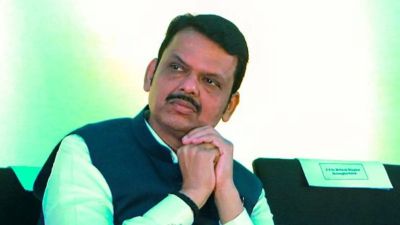SC upholds Rajasthan rule barring those with more than 2 kids from police force: What is the case
What is Rajasthan's rule capping the number of kids one can have to qualify for a police force job? Do other states have similar rules? What did the SC say?
 The court held that the rule is non-discriminatory and constitutional.
The court held that the rule is non-discriminatory and constitutional.The Supreme Court has affirmed the Rajasthan government’s decision to bar candidates with more than two children from applying for a police constable post.
A Bench of Justices Surya Kant, Dipankar Datta, and K V Viswanathan ruled that Rule 24(4) of the Rajasthan Police Subordinate Service Rules, 1989, which stipulates a maximum limit of two children per candidate, is non-discriminatory and constitutional.
What do the 1989 Rules say?
The Rajasthan Police Subordinate Service Rules, 1989, apply to the entire police establishment in the state of Rajasthan. Rule 2(j) of the 1989 Rules defines “police establishment” to include the Police Department, the Anti-Corruption Department, and other such units as specified by the Director General-cum-Inspector General of Police from time to time.
Broadly, Rule 24 deals with “Disqualification for Appointment.” Apart from those with over two children on or after June 1, 2002, it also disqualifies male candidates with more than one living wife, unless the government is satisfied there exist special grounds for it. Similarly, female candidates married to those who already have a living wife are disqualified unless the government is satisfied there are special grounds for it. Candidates accepting dowry at the time of marriage have also been disqualified.
While accepting or demanding a dowry is illegal, having more than a certain number of children has not been declared a crime in the statute books. However, both the Centre and the state governments have made multiple attempts to push the population towards the two-child policy.
In this case, the court was dealing with Rule 24(4) of the Rajasthan Police Subordinate Service Rules, 1989, which says, “No candidate shall be eligible for appointment to the service who has more than two children on or after” June 1, 2002.
There are two conditions to this. The first is that candidates having more than two children will not be deemed disqualified as long as the number of children they had on June 1, 2002, does not increase. Secondly, for candidates having “only one child from earlier delivery” but more than one child from a “single subsequent delivery” (twins), “the children so born shall be deemed to be one entity.”
What was the case?
The court was acting on an ex-serviceman’s plea. After retiring from defence services on January 31, 2017, he applied for the post of constable in the Rajasthan Police on May 25, 2018, but his candidature was rejected as he had more than two children after June 1, 2002.
Subsequently, he approached the Rajasthan HC, where a two-judge Bench on October 12, 2022, turned down his claim. This led the ex-serviceman to approach the top court.
What did the SC rule?
In its February 20 order, the Supreme Court dismissed the ex-serviceman’s challenge to the Rajasthan HC order.
Recalling that a “somewhat similar provision” was introduced as an eligibility condition to contest panchayat elections and was upheld by the SC in its 2003 ruling in “Javed vs. State of Haryana”, the court upheld Rule 24 (2).
What is the 2003 Javed vs Haryana ruling the SC relied on?
In Javed vs. the State of Haryana, a three-judge Bench of the top court upheld the Haryana Municipal (Second Amendment) Act, 1994, and consequently affirmed the two child-policy for holding the offices of sarpanch or up-sarpanch in the state.
A Bench led by then Justice RC Lahoti held that the classification which disqualifies candidates for having more than two living children was “non-discriminatory” and “intra-vires the Constitution” since the objective behind the provision was to promote family planning.
Are there such policies in other states?
“Population control and family planning” is a subject on the concurrent list, which contains matters both the Centre and the states can legislate on.
Thus, several states have included a small family as a criterion to qualify for various positions.
The Rajasthan Panchayati Raj Act 1994 disqualifies those with over two children from contesting elections as a panch or a member.
The Odisha Zilla Parishad Act, 1991, bars those with more than two children from contesting.
The Gujarat Local Authorities Laws (Amendment) Act, 1962, disqualifies those with more than two children from contesting elections for bodies of local self-governance, like panchayats, municipalities, and municipal corporations.
While similar laws exist for local body elections in states like Maharashtra, Assam, Telangana, and Andhra Pradesh, some of these states have gone a step further, bringing such two-child policies into the realm of public employment.
For instance, the Maharashtra Civil Services (Declaration of Small Family) Rules came into force in 2005 and mandated the filing of a “small family declaration” while applying for a government job, The Indian Express had reported earlier.
In 2021, the UP State Law Commission in 2021 proposed the Uttar Pradesh Population (Control, Stabilisation and Welfare) Bill, which sought disqualification from appointment for government employees with more than two children, disqualifying those with over two children from contesting municipal or panchayat elections, and a housing tax rebate for non-government employees having two or fewer children, among other incentives.
- 01
- 02
- 03
- 04
- 05





































